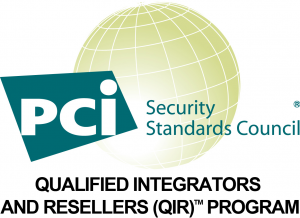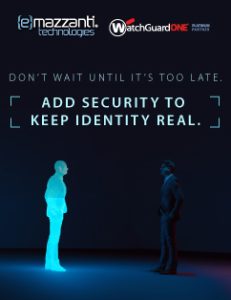Consumers have been feeling the pain of poor credit card data security for some time. Retailers are slow to adopt EMV despite card security worries. An October, 2014, Honeywell survey1 revealed that, following a long string of credit card security breaches, more consumers were concerned about the security of credit and debit card information than their health, retirement savings or losing their cell phone.
An October, 2015 Gallup survey2 found that 70% of consumers worry about identity theft and hacking of credit card information. The surprising survey results show that the credit card data security problem is a serious long-term issue affecting a majority of consumers.
EMV Adoption Slower than Forecast
In spite of consumer concerns about the safety of their data, merchants seem to be ignoring an opportunity to address those concerns and increase consumer trust. Some cite reasons beyond their control, but nearly two thirds have yet to adopt the new Europay, MasterCard and VISA (EMV) chip card security standard for credit and debit cards.
As of January, 2016, only 37% of merchants had implemented the standard3 even though an October 1, 2015 conversion deadline came and went. While liability for card present fraud shifted to the merchants if they were not EMV ready by that date, adoption has been slower than forecast. Some experts had predicted 50% adoption or more by spring.
“The fact that more consumers are worried about credit and debit card security than their health shows that for many, handing over personal data to a merchant is a scary proposition,” stated Jennifer Mazzanti, President, eMazzanti Technologies. “This is a problem that retailers can address by implementing EMV, and doing so can build trust, generate goodwill and create a competitive advantage for forward-looking merchants.”
Processors and Technical Resources Not Ready
The reasons reported by merchants for the slower than expected EMV adoption include a desire to get past the holidays before making a change and an industry lack of readiness. Many report that their processors just aren’t ready to accept EMV payments. A shortage of technical resources to implement the new technology has also contributed to the delay.
So, what options remain for retailers who want to move ahead with EMV conversion? Merchants waiting on processors may want to consider switching their affiliation. With a careful search, they may even be able to secure a lower rate. The lack of technical resources might be tougher to overcome considering that VISA is soon raising the bar on installer qualifications.
The VISA Requirement
VISA informed merchants and their agents in an October 29, 2015, security bulletin that merchants must have point of sale (POS) equipment installed by payment card industry (PCI) Security Standards Council (SSC)-certified professionals. The new requirement is part of an effort to thwart hackers who are exploiting improperly configured networks, inadequate password protection and poor remote access security.
 The VISA bulletin states that beginning March 31, 2016, credit card acquirers must require all new Level 4 merchants to use only PCI-certified Qualified Integrator and Resellers (QIR) professionals listed on the PCI-SSC website for the installation of POS terminals, application implementation and integration services. Level 4 merchants are owner-operated locations of corporate or franchise organizations.
The VISA bulletin states that beginning March 31, 2016, credit card acquirers must require all new Level 4 merchants to use only PCI-certified Qualified Integrator and Resellers (QIR) professionals listed on the PCI-SSC website for the installation of POS terminals, application implementation and integration services. Level 4 merchants are owner-operated locations of corporate or franchise organizations.
The new VISA requirement greatly reduces the number of payment technology providers that are qualified to install and service merchant POS systems. Retailers who use QIR certified providers can expect to receive the highest quality POS application and terminal services.
The Way Forward with EMV
Merchants can take heart in the business axiom, ‘problems create opportunities.’ When customers care more about their credit card security than their health, perceptive merchants might carefully tap into that concern and offer increased security by adopting EMV technology.
Using innovative ways to promote their superior card security to customers, merchants may become more competitive, build trust and appear more up to date with the EMV international standard. In areas like NYC they may even be able to appeal to international customers who have relied on the standard for several years.
EMV-ready Processor, Terminals and Installation
eMazzanti Technologies is currently one of only 105 companies worldwide to be certified as a PCI Qualified Integrator under the stringent certification standards of the PCI SSC QIR program. With eMazzanti, merchants have one stop for EMV-ready payment processing, POS terminals, installation and support.
eMazzanti is fully prepared and ready to help merchants make the switch to the new EMV standard. As a PCI Security Standards Council Participating Organization and one of the first companies to be QIR certified, eMazzanti’s technicians perform EMV technology conversions that meet the highest standards and comply with the VISA QIR requirements.
 Get EMV Ready
Get EMV Ready
The concern among consumers about credit card data security justifies immediate action. Merchants who move forward with EMV have an opportunity to alleviate those concerns, increasing customer confidence and loyalty. Don’t keep your customers waiting and worried. Implement EMV today.
1Source: Honeywell poll conducted October 1, 2014, by KRC Research of more than 2,000 adult credit or debit card users in the U.S. 2Source: Gallup poll based on telephone interviews conducted Oct. 7-11, 2015, on the Gallup U.S. Daily survey 3Source: TSG survey results reported in pymtnts.com February 23, 2016, article. EMV’s Slow Crawl Into Retail












